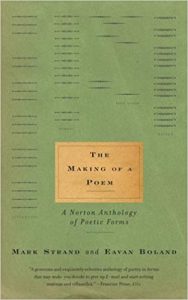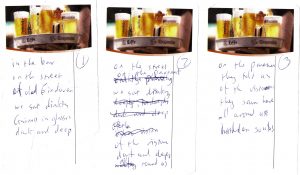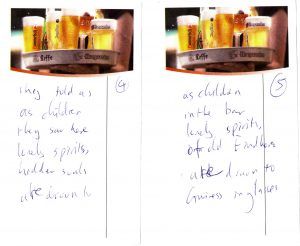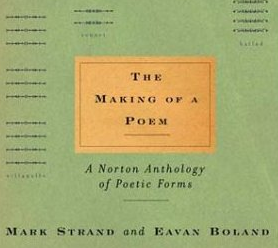While sorting some old files I came across a small pack of notes, stapled together. They were clearly written in a bar (the beer glasses are a give away!), and the notes mention Eindhoven.
I then remembered. On one of my visits to Eindhoven, either teaching USI students at TU/e, or for the Desire conference, I was sitting with someone at a bar, I think waiting for others to join us and I was describing the pantoum, a Malayan poetry form I had originally read about in “The Making of a Poem: A Norton Anthology of Poetic Form“. This is a lovely book I was given for birthday or Christmas some years ago, that describes many poetical forms, some common such as the sonnet, others, like the pantoum, that I had never heard of before.

In a pantoum the second and fourth lines of the first stanza become the first and third lines of the second stanza, and then so on for the rest of the poem, like voices calling from verse to verse. My favourite example was “The Method” by J. D. McClatchy, which stretches the idea of the repeated lines, modifying them slightly to be almost the same, but not quite: perhaps modified, punctuated differently or simply sounding similar but completely different words. For example, the second line of the first stanza is “Seem to pee more often, eat“, which becomes “Sympathy, more often than not” as the first line of the second stanza.
By way of demonstration I tried to write a pantoum on the spot. There were paper slips on the table, to allow you to write your order to take to the bar, and these became manuscript paper. The lines are very short, which is only fair as I was writing a five line poem on the fly, but I had also clearly forgotten the proper rules (I just rechecked now) as I have six-line stanzas, instead of four-line quatrains. However, I did manage to get the last stanza to cycle round and use the unrepeated (1st, 3rd and 5th) lines of the first stanza, not bad for a two minute demo 🙂
The Pantoum of the Guinness in Eindhoven
in the bar
on the street
of old Eindhoven
we sat drinking
Guinness in glasses
dark and deep
on the street
on the pavement
we sat drinking
of the visions
dark and deep
all around us
on the pavement
they told us
of the visions
they saw here
all around us
hidden souls
they told us
as children
they saw here
lonely spirits
hidden souls
are drawn to
as children
in the bar
lonely spirits
of old Eindhoven
are drawn to
Guinness in glasses


